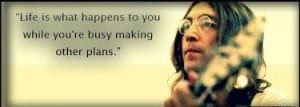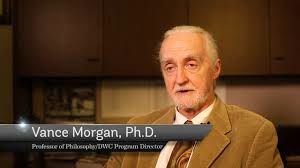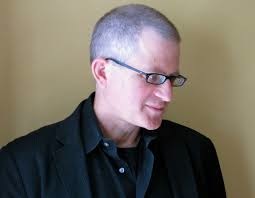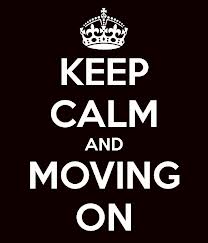“Get a picture of yourself ten years from now in your mind,” I said to my eighteen-year old freshmen. “Your job, whether you’ll be in a permanent relationship, whether you will have kids or have considered having them, where you’ll be living, graduate school or not. The works.” Most of them had smiles on their faces as they constructed their future selves in their imaginations. We were studying the Stoics, so I suspect they were wondering what this exercise had to do with the day’s material. “Got the picture?” I asked—they all nodded. “None of it is going to happen, or at least not at all in the way you think.”  This appeared to be a surprise to some of them—at eighteen it is still easy to believe that much of your future is within your control.
This appeared to be a surprise to some of them—at eighteen it is still easy to believe that much of your future is within your control.
We have all heard the related truisms: “Life is what happens when you are busy making other plans,” “If you want to give God a good laugh, tell her your plans” and so on. Anyone past a certain age—say thirty—nods bemusedly when hearing them because unlike many bumper sticker summaries of the complexities of human life, these sound bites are completely true. Sometimes the unexpected changes are welcome, other times we are surprised by events so challenging and disturbing that we doubt we’ll survive them.  But we do. The persons we are and will become have been and will be constructed out of what we never saw and won’t see coming.
But we do. The persons we are and will become have been and will be constructed out of what we never saw and won’t see coming.
I’m fifty-eight, well established in a profession that I deeply love, happily in love with and married to my best friend, living in my favorite part of the country—Jeanne and I have carved out a life that seems comfortable, predictable, and stable. She observed positively upon returning from visiting her family and the latest drama in New York a couple of weeks ago that “we really live a peaceful life.” Exactly as we want it. But on this New Year’s Eve I am on the brink of a year of significant change and am reminded that even within the boundaries of apparent stability, things never stay the same for long.
I am entering my final semester of directing a large academic program on my campus, a task that has consumed and defined my life both on campus and off for the past four years. When July 1 of next year arrives and I hand the reins over to my successor, I  will have spent eight of my last eleven professional years as both an administrator and teacher (four years as department chair, four years as program director). I did not go into the teaching profession to be an administrator; although it’s part of the academic life to play administrator on occasion, I’m looking forward to finding out what it’s like to be just a full-time teacher. And yet . . . in a strange way I’m going to miss being a program director. I’ve learned a lot about myself as I juggle scheduling, faculty herding and student management on a daily basis. There are many indications that the program has become better over the past few years—and I sort of like being in charge. But all things come to an end, including this.
will have spent eight of my last eleven professional years as both an administrator and teacher (four years as department chair, four years as program director). I did not go into the teaching profession to be an administrator; although it’s part of the academic life to play administrator on occasion, I’m looking forward to finding out what it’s like to be just a full-time teacher. And yet . . . in a strange way I’m going to miss being a program director. I’ve learned a lot about myself as I juggle scheduling, faculty herding and student management on a daily basis. There are many indications that the program has become better over the past few years—and I sort of like being in charge. But all things come to an end, including this.
The timing of my stepping down from directing this program is intentionally coordinated with the beginning of my next sabbatical next July 1.  This will be my third sabbatical. I wrote a book during my first one, my life was changed during my second one, so who knows what this one will bring? It will be my first full-year sabbatical—I’ve told everyone that I wanted to have one full-year sabbatical during my career, and this is the time. By the time my next one comes around, I may be too decrepit and crotchety to appreciate it. I have a plan for what I want to do, but where it will happen and how is totally up in the air. Proposals have been sent, contacts have been made, feelers have been extended—and I won’t know how things will be shaping up for at least two or three months.
This will be my third sabbatical. I wrote a book during my first one, my life was changed during my second one, so who knows what this one will bring? It will be my first full-year sabbatical—I’ve told everyone that I wanted to have one full-year sabbatical during my career, and this is the time. By the time my next one comes around, I may be too decrepit and crotchety to appreciate it. I have a plan for what I want to do, but where it will happen and how is totally up in the air. Proposals have been sent, contacts have been made, feelers have been extended—and I won’t know how things will be shaping up for at least two or three months.
Outside of work things are also in flux. Jeanne’s job was eliminated a couple of months ago—who knows when or if someone will be smart enough to recognize what an asset she will be for them? Everything is moving on at the church we have attended and been involved with for the past four years. Our good friend Marsue, who is the reason why we started going to the church has retired (at least for a couple of weeks) and a new rector has been hired. Marsue used to turn the pulpit over to me about once every three or four months to give the sermon—I’ve probably given my last sermon at Trinity. A couple of months before Marsue’s retirement a full-time music minister was hired, which means three years of frequent, interim organ playing—one of the loveliest surprises that has come my way in many years—are at an end. Everyone at Trinity knows we started attending because of Marsue—will we be staying? Jeanne and I have answered regularly that it depends on what Big Bird is doing. The wind blows where it will, and no one can tell where it’s coming from or where it is going—so it is with all things Big Bird.
Everything is moving on at the church we have attended and been involved with for the past four years. Our good friend Marsue, who is the reason why we started going to the church has retired (at least for a couple of weeks) and a new rector has been hired. Marsue used to turn the pulpit over to me about once every three or four months to give the sermon—I’ve probably given my last sermon at Trinity. A couple of months before Marsue’s retirement a full-time music minister was hired, which means three years of frequent, interim organ playing—one of the loveliest surprises that has come my way in many years—are at an end. Everyone at Trinity knows we started attending because of Marsue—will we be staying? Jeanne and I have answered regularly that it depends on what Big Bird is doing. The wind blows where it will, and no one can tell where it’s coming from or where it is going—so it is with all things Big Bird.
A couple of Sundays ago I was lector at church and read the Old Testament lesson from Second Samuel. After cementing his rise from shepherd to king through a series of struggles over many years against challenges both internal and external, David is ready to enjoy his middle-age years as monarch and to turn his attention toward God.  He tells his prophet advisor and sidekick Nathan of his plans to build a temple to house the Ark of the Covenant, a place for God to settle down and enjoy himself just as David plans to. Given that God’s dwelling has been a tent or movable tabernacle for centuries, Nathan approves of David’s plans. Until God sets Nathan straight in a dream, that is. When did I ever say I wanted a permanent place to live? God asks. Do I look like someone who want to settle down? I haven’t stopped being a nomad since I delivered Israel from bondage in Egypt and don’t plan to stop now. If you want to hang out with me, don’t get too comfortable and be ready to move. Then this wonderful promise passed on to David through Nathan: “The Lord declares to you that the Lord will make you a house.”
He tells his prophet advisor and sidekick Nathan of his plans to build a temple to house the Ark of the Covenant, a place for God to settle down and enjoy himself just as David plans to. Given that God’s dwelling has been a tent or movable tabernacle for centuries, Nathan approves of David’s plans. Until God sets Nathan straight in a dream, that is. When did I ever say I wanted a permanent place to live? God asks. Do I look like someone who want to settle down? I haven’t stopped being a nomad since I delivered Israel from bondage in Egypt and don’t plan to stop now. If you want to hang out with me, don’t get too comfortable and be ready to move. Then this wonderful promise passed on to David through Nathan: “The Lord declares to you that the Lord will make you a house.”
 In other words, God already has a house—Us. You and me. That restless spirit of change that permeates everyone’s life? That’s God. As Christian Wiman writes in his wonderful My Bright Abyss,
In other words, God already has a house—Us. You and me. That restless spirit of change that permeates everyone’s life? That’s God. As Christian Wiman writes in his wonderful My Bright Abyss,
To say that one must live in uncertainty doesn’t begin to get at the tenuous, precarious nature of faith. The minute you begin to speak with certitude about God, he is gone. We praise people for having strong faith, but strength is only one part of that physical metaphor: one also needs flexibility.
This, Richard Rodriguez suggests, is what monotheists get for believing in a desert God.
The desert’s uninhabitability convinces Jew and Christian and Muslim that we are meant for another place.
Which means that trying to confine this restless deity in buildings, dogma, or certainty is a mistake of cosmic proportions.
Desert is the fossil of water. Is dogma a fossil of the living God—the shell of God’s passage—but God is otherwise or opposite?
For those not inclined toward religious belief, feel free to come up with your own explanation for the contingency and uncertainty of human existence. You don’t need a pillar of fire to convince you that it’s all about moving on.











